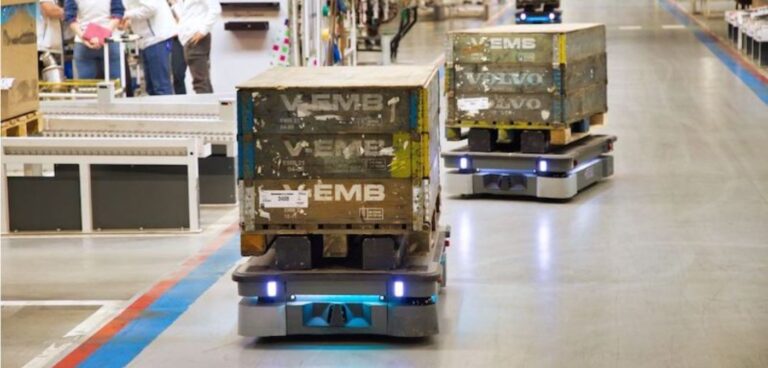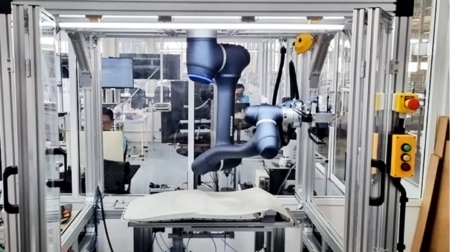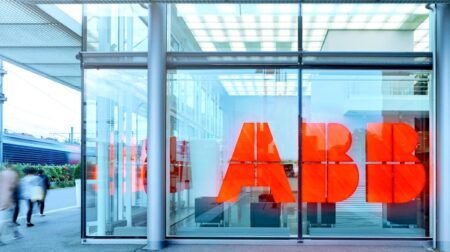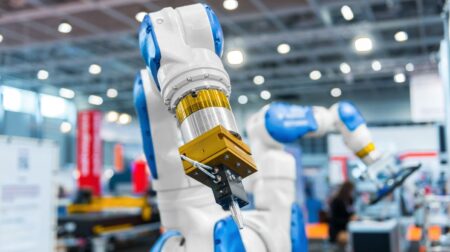Forvia, a developer of technological solutions for the automotive industry, has announced its procurement of a fleet of autonomous mobile robots (AMRs) from robotics firm Mobile Industrial Robots (MiR) to improve the productivity of its logistics operations.
The 14 robots have been deployed in the company’s plant in Písek, Czech Republic, where seven heavy duty MiR600s robots are working in finished goods, bringing empty pallets to the assembly lines and picking up full pallets and transporting them to the logistics area.
MiR250 robots are also in operation at the siting, and have been deployed to move components from the warehouse to assembly lines and reportedly work around the clock.
The logistics of the shop floor previous relied on almost exclusively manual processes, including forklifts and stackers equipment, without any automation. Considering the associated risks to employs for heavier-duty tasks, Forvia chose to invest in a fleet of robots to support its human employees.
“One of the main challenges of the project was to deploy a flexible logistics environment capable of meeting the ever-changing needs on our plant’s shop floor,” said Martin Horáček, supply chain operations manager in Faurecia Clean Mobility Europe.
“Our shop floor environment is extremely live and intense, with various logistics equipment including palletisers, carts, forklifts etc. encountering people serving production lines.
“Autonomous mobile robots from Mobile Industrial Robots appeared to fit the best in this plant.”
The MiR fleet can organise intralogistics processes and is designed to operate with an internal script and software to help optimise workflows. It was developed so that all communication is fully automatic and eliminates the need for operator assistance.
According to MiR, its robots can work effectively with people to avoid bottlenecks, as intelligent robots can recognise people on the shop floor and can stop before or navigate around them without decreasing the robots’ efficiency.
What’s more, it claims its bots offer improved safety by eliminating forklifts on the shop floor, increased productivity in all areas of operations and that the Písek site saw a return on investment in less than two years.








